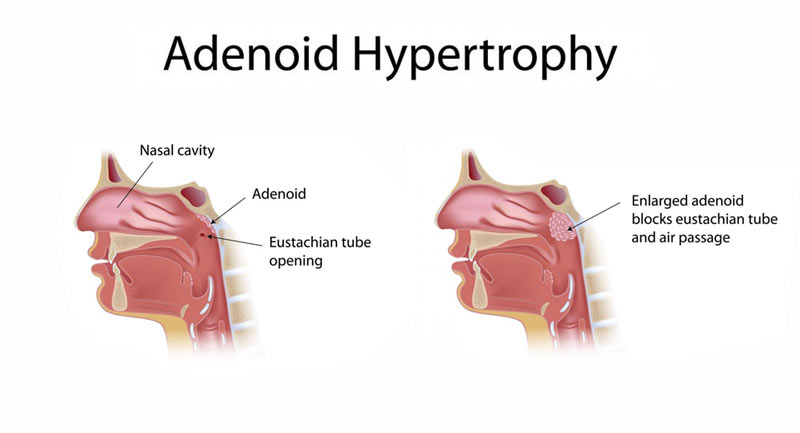What is the adenoid?
The adenoid is a single clump of lymphatic tissue in the back of the nose (nasopharynx). There are numerous allergens that waft through the air, and if inhaled or swallowed, may cause infections or allergic reactions.
Together with tonsils, your adenoids are there to trap these irritants from entering into your immune system. Adenoids are made up of cells that make antibodies to help your body fight infections.
What function does the adenoid serve – isn’t it important?
Lymphoid tissue is composed of lymphocytes which are mostly involved in antibody production.
Since we generally consider antibody production to be a good thing, many studies have been performed to try to clarify the importance of the tonsils and adenoid.
There seems to be no adverse effect on the immune status or health of patients who have had them removed.
Any noticable effect of tonsil and adenoid removal has generally been positive.
It appears that the tonsils and adenoids do not effectively handle the huge number of viral infections that occur in children in an urban population.
The immune system, including the tonsils and adenoids, developed during a era where the child was rarely exposed to a large number of other people and the germs they carried.
Why have the adenoids removed?
Adenoidectomy is usually a children’s ENT operation
Adenoid removal may be needed for:
- Adenoid hypertrophy
- Adenoid infection
- Difficulty swallowing
- A sore throat
- Difficulty breathing through the nose
- Mouth breathing
- Snoring
- Noisy breathing
- Sleep apnea
What is an Adenoidectomy?
An adenoidectomy is the surgery performed in order to remove the adenoids if they are either enlarged and/or if a patient is experiencing any of the above symptoms.
This surgery is performed through the mouth and is done under general anaesthetic.
Post-operative recovery is usually smooth but complications may include vomiting, difficulties with swallowing, pain and bleeding.
Adenoidectomy is usually performed as a day surgery procedure.
Recovery after adenoidectomy is usually uneventful with a 24-48 hour rest advised after surgery.




